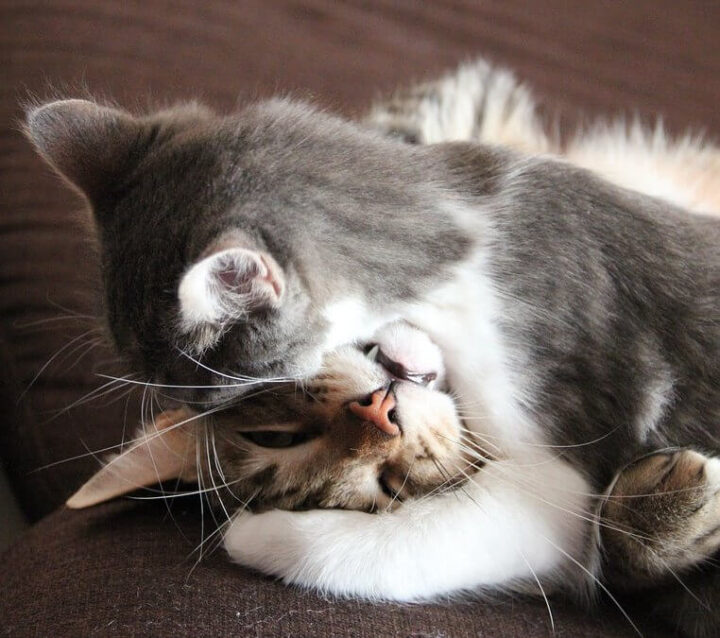Worms are parasites that can live inside your pet and affect their health. Worm control starts from when puppies are only 2 weeks only and kittens from 6 weeks old and continues for life.
When should I worm my pet?
Dogs
Worming medication should be given very 2 weeks until 12 weeks old, then every month until 6 months old. Intestinal wormers then need to be given every 3 months for life.
Cats
Worming medications should be given every 2 weeks from 6 weeks old until 12 weeks old, then once every 3 months for life.
What worms can my pet get?
Hookworm
Hookworms are common parasites of the small intestine of dogs and cats.
Tapeworm
Tapeworms are common parasites of the small intestine of dogs and cats. They are flat and measure a few millimetres in length.
Roundworm
Roundworms are the most common worms of dogs and cats. The adult worms are found in the intestine and live on gut content. They resemble spaghetti in appearance, being 2-3mm thick and up to 20cm long.
Whipworm
Whipworms are common parasites of the large intestine of dogs. They are thin and 5-7cm long. Using their mouths as a spear-like sword, whipworms slash and puncture the intestine wall and feed on the released blood and tissue fluids.
How does my pet get worms?
- Ingesting an animal with worms
- Drinking contaminated water
- Coming into contact with infected animals or their faeces
- From their mother when nursing
- From eating flea’s
- Larvae boring into your pets skin
What symptoms may your pet show if they have worms?
Some pets won’t show any or few symptoms but others may display many of the signs, some common clinical signs include:
- Diarrhoea
- Worms visible in stool or segments of worm seen near anus
- Bloody stool
- Bloating or round, potbellied appearance to abdomen
- Weight loss
- Vomiting
- Constipation
- Trouble breathing
What should you do if you pet shows signs of having or does have worms?
We recommend calling us and making an appointment with one of our vets for diagnosis and treatment.
The story of a puppy called Colin
Colin the puppy came in to see us when he was only 10 weeks old. His owner had only had him for a couple of weeks and had noticed Colin seemed very tried most of the time, wasn’t too interested in things going on, didn’t have much appetite and had pretty bad diarrhoea. Our Vet saw Colin, took a sample of his stools and performed a faecal float on it. This showed evidence of Hookworm. Colin was kept in for a couple of night and given antibiotics and benzimidazole which is used against gastrointestinal parasites. Once Colin was strong enough and was eating well with normal stools he was able to go home. Colin most probably caught hookworm from his Mum while feeding which highlights the importance of keeping your adult dogs and young pups worming treatments up to date. If this had gone untreated it could have ended in death for young Colin.



